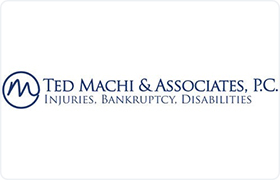Irving Bankruptcy & Debt Lawyer, Texas, page 2
Sponsored Law Firm
-
 x
x

Click For More Info:
-
Machi & Associates, P.C.
1521 North Cooper Street Suite 550 Arlington, TX 76011» view mapAccident & Injury, Bankruptcy, Social Secuirty We Fight So You Don't Have To
Our professional team of attorneys and staff provide the experience and expertise needed to effectively handle your case.
800-804-0771
Pamela L. Wilder
Adoption, Alimony & Spousal Support, Child Support, Collection
Status: In Good Standing
FREE CONSULTATION
CONTACTDiana S. Weitzel
Adoption, Alimony & Spousal Support, Child Support, Collection
Status: In Good Standing
FREE CONSULTATION
CONTACTBill Venegoni
Age Discrimination, Americans with Disabilities Act , Mesothelioma, Collection
Status: In Good Standing
Cheryl L. Mann
Bad Faith Insurance, Contract, Business Organization, Credit & Debt
Status: In Good Standing
FREE CONSULTATION
CONTACT Ted Machi Arlington, TX
Ted Machi Arlington, TX Practice AreasExpertise
Practice AreasExpertise
